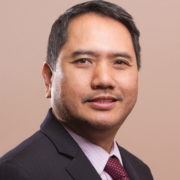One advantage in filing a fiancé visa petition is that the fiancé beneficiary will be able to enter the United States faster compared to a spousal immigrant petition to be filed for the fiance.
Once the fiancé beneficiary enters the United States, he or she must marry the U.S. citizen petitioner within ninety (90) days. After the marriage, the fiancé beneficiary must file for an application to adjust his or her status to that of a permanent resident alien.
Since the purpose in the issuance of a fiancé visa is for the beneficiary to enter the United States to marry the U.S. citizen petitioner, there are certain restrictions imposed on the fiancé visa. The fiancé beneficiary can only adjust status based on marriage to the U.S. citizen petitioner who filed the fiancé petition. Neither can the fiancé beneficiary change status to another type of nonimmigrant visa (such as a student visa, working visa, investor’s visa) nor extend the fiancé visa.
Two different case scenarios will best illustrate the implications on the fiancé beneficiary’s failure to marry the U.S. citizen petitioner or adjust her status after marriage to the U.S. citizen petitioner.
• Jose filed a fiancé visa petition for Gilda. Upon Gilda’s entry into the United States, both of them discovered that they were not meant for each other. Since Gilda was already here in the United States, she decided to remain in the country and stayed with her relatives. After a few years, Gilda met Mario and the two fell in love. Gilda and Mario eventually got married. Thinking that she was now married to a U.S. citizen, Gilda filed for an application for adjustment of status based on her marriage to Mario. After their interview, the U.S. Citizenship and Immigration Services (USCIS) denied Gilda’s application for adjustment of status because Gilda entered the U.S. using a fiancé visa and she was not adjusting her status based on her marriage to the person who filed the fiancé visa petition for her. Gilda may still be allowed to stay in the country and fix her status if she has been in the country for at least ten years. Gilda has the option to exit the country and undergo visa processing and to file for a waiver before the U.S. Embassy so that the government could waive her unlawful presence if she has been in the United States unlawfully for more than 180 days. The option of filing a stateside waiver is also available to her where she could file the waiver here in the United States first before going back to her home country.
• Norman filed a fiancé visa petition for Daisy. Norman and Daisy got married within 90 days upon Daisy’s entry into the United States. Daisy then filed for her application for adjustment of status with the USCIS. During the early stages of their marriage, Daisy discovered that Norman was not the person she fell in love with. Norman had a temper and he began abusing her verbally and physically. Since Daisy could no longer stand the abuses of Norman, she left their home and went to a shelter. This angered Norman who then withdrew the affidavit of support he submitted for Daisy in her adjustment of status application. Daisy’s adjustment application was eventually denied. Under this factual scenario, Daisy can file for a battered spouse petition and adjust her status without Norman’s participation.
It is important to note that the factual antecedents of each case are different and it is essential to assess various reliefs that may be available depending on the circumstances of each case.
* * *
Atty. Dennis E. Chua is a partner in The Law Firm of Chua Tinsay and Vega (CTV), a full service law firm with offices in San Francisco, San Diego and Manila. The information presented in this article is for general information only and is not, nor intended to be, formal legal advice nor the formation of an attorney-client relationship. Call or e-mail CTV for an in-person or phone consultation to discuss your particular situation and/or how their services may be retained at (415) 495-8088; (619) 955-6277; Dchua@ctvattys.com. The CTV Attorneys will be at Max’s Restaurant in Vallejo on October 19, 2009 from 5pm to 7pm to hold a FREE legal clinic.






